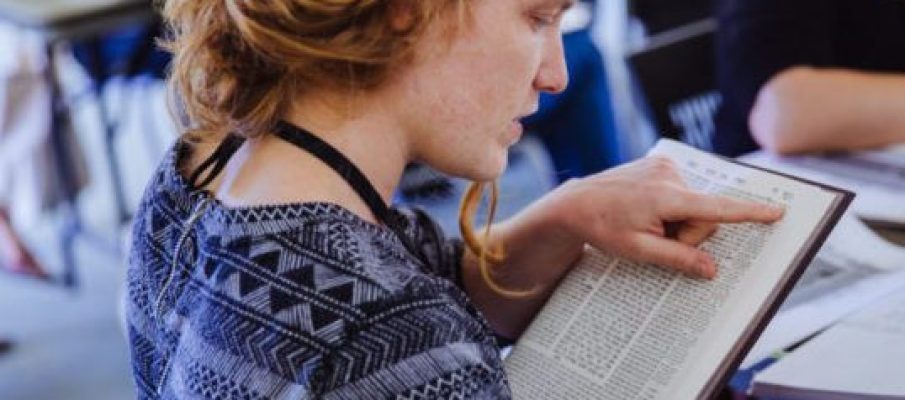What Is the Ashkenazi Women’s Tradition of Measuring Burial Places?
Let’s Learn Together with Scholar and Artist Maia Brown, May 4 at 2 pm
By Emily Weiner
 When Maia Brown reached out to CBI, nobody on the Programming Committee had ever heard of feldmestn—the practice of measuring ancestors’ burial places with candlewick, later burnt for the living and the dead. We were intrigued, and doubly pleased that Humanities Washington had included Brown’s participatory presentation about this recently resurfaced Ashkenazi women’s tradition in their Speakers Bureau Program, which offers free presentations by cultural experts to venues around the state.
When Maia Brown reached out to CBI, nobody on the Programming Committee had ever heard of feldmestn—the practice of measuring ancestors’ burial places with candlewick, later burnt for the living and the dead. We were intrigued, and doubly pleased that Humanities Washington had included Brown’s participatory presentation about this recently resurfaced Ashkenazi women’s tradition in their Speakers Bureau Program, which offers free presentations by cultural experts to venues around the state.
Brown has titled the event “Measuring Mourning; A  Ritual for Loss.” Questions she will pose include: How can this 200-year-old Eastern European Jewish tradition help us grapple with contemporary catastrophes, as well as old displacements, genocides, and assimilation? When we do not know where our people are buried, what do we measure?
Ritual for Loss.” Questions she will pose include: How can this 200-year-old Eastern European Jewish tradition help us grapple with contemporary catastrophes, as well as old displacements, genocides, and assimilation? When we do not know where our people are buried, what do we measure?
Brown is a Seattle-based visual artist, Yiddish musician, writer, translator, and educator. She has a background in oral history and fine art, including a Watson Fellowship to study storytelling and advocacy in South Africa and the North of Ireland. She received her Master of Fine Arts in Interdisciplinary Arts at Goddard College. She is a dedicated student and teacher of her own tradition as well as the many ways people have reached out to each other across communities.
Brown will share some of her own art practice and conclude with an open-ended maker space. Participants will have an opportunity to work with materials, including wick, to measure and reflect.
CBI’s only cost will be security, because Brown’s presentation is fully funded by Humanities Washington, which has been receiving half its annual budget from the National Endowment for the Humanities (NEH), a Federal agency. (The other 50 percent has come from corporations, foundations, individuals, and the state).
Humanities Washington’s Federal funding is now threatened.
On April 2, letters from the Acting Chairman of the NEH immediately cancelled or rescinded hundreds of NEH grant contracts nationwide, including those of Humanities Washington and other Washington-based cultural organizations. Humanities Washington estimates that upwards of $10 million in cultural funding in Washington alone is at stake, including for libraries, museums, and schools.
The NEH letter to Humanities Washington said “Your grant no longer effectuates the agency’s needs and priorities,” and that “NEH is repurposing its funding allocations in a new direction in furtherance of the President’s agenda.”
CBI has been reassured that Humanities Washington is able to continue supporting scheduled events like ours, despite the uncertainty about future programming.
Humanities Washington has asked for assistance in spreading the word that “Cuts to NEH mean people will lose services, people will lose jobs and, perhaps even more importantly, people will lose access to educational programs that enable them to think freely and creatively as well as access to and cultural enrichment opportunities in even the smallest communities.”
The “Measuring Mourning” program at CBI will embody the vision of Humanities Washington: “We envision a state where all people seek a deeper understanding of others, themselves, and the human experience, in order to discern and promote the common good.” CBI is proud to be both a beneficiary of and a participant in this endeavor.

